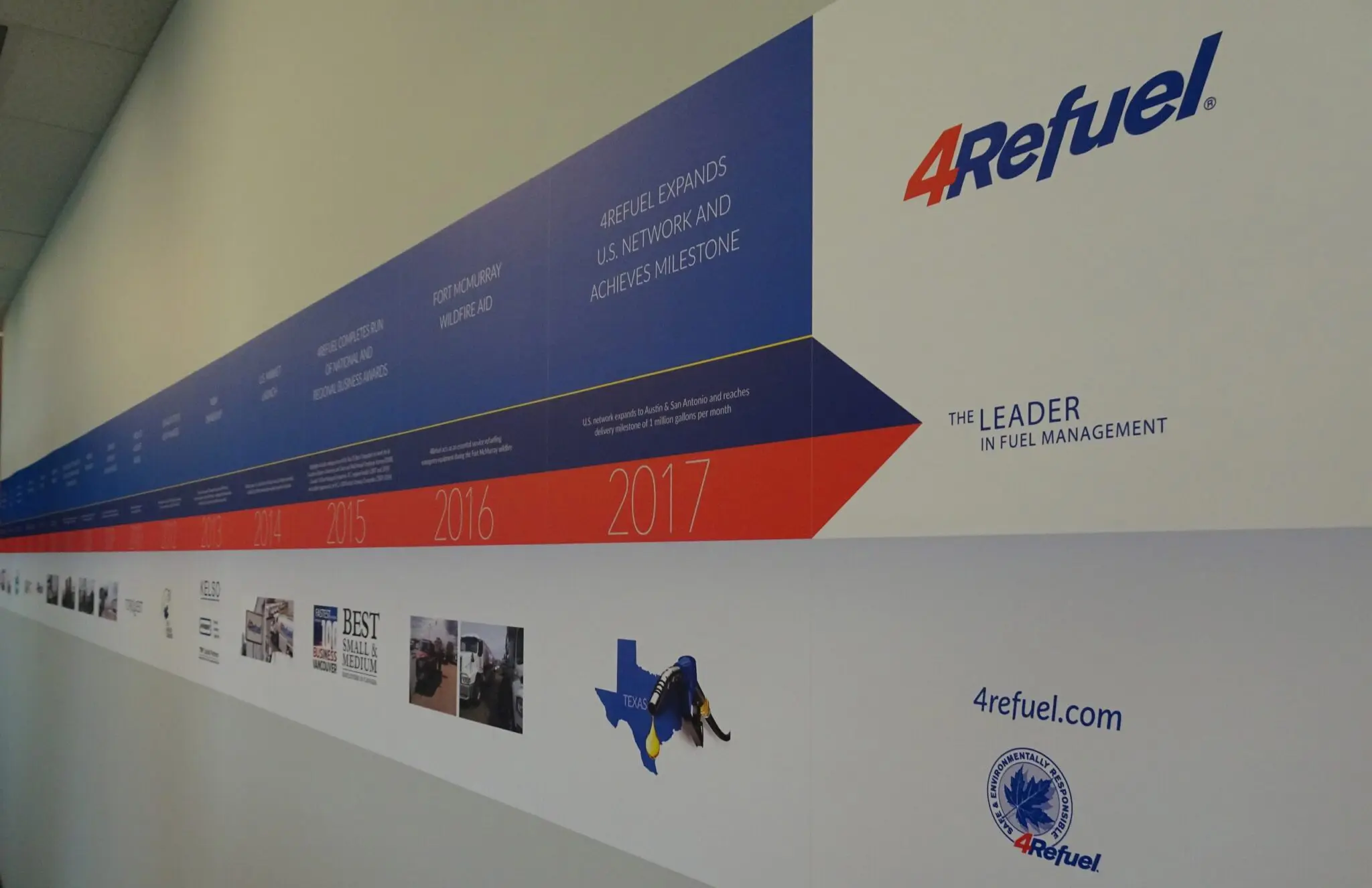
We've Moved!
4Refuel is growing and we are happy to announce we have relocated our Oakville Headquarters.
While within in the same building, we have moved into a new, and larger, suite after outgrowing our previous home of more than 11 years. The Oakville office now houses Customer Care, Finance, Marketing, Operations & Strategy, IT and Human Resources departments, as well as our Executive Team.
A further addition includes a brand new operational war room for strategy, design and customer solutions.
The new office features half-wall cubicles to create a bright, open and vibrant space that utilizes maximum natural light, a lunchroom with seating and a full reception area.
Additional ‘hoteling station’ desks are open and available to visiting staff and guests, while all meeting spaces, including a large 18-seat boardroom, are built with videoconferencing capabilities.
Greeting visitors and clients as they enter is a 20-foot timeline of 4Refuel’s history that highlights events and milestones from foundation in 1995 to current date.
“We are very excited about our new space and feel we have created an environment we are very proud to call home and invite our clients to,” said Larry Rodo, President & CEO of 4Refuel.
4Refuel President & CEO Larry Rodo at the reception area of the brand new Oakville Headquarters.
Located in northeast Oakville, the office is easily accessible by Highway 403, QEW and 407 ETR and is within walking distance to many amenities including restaurants, stores and transit.
